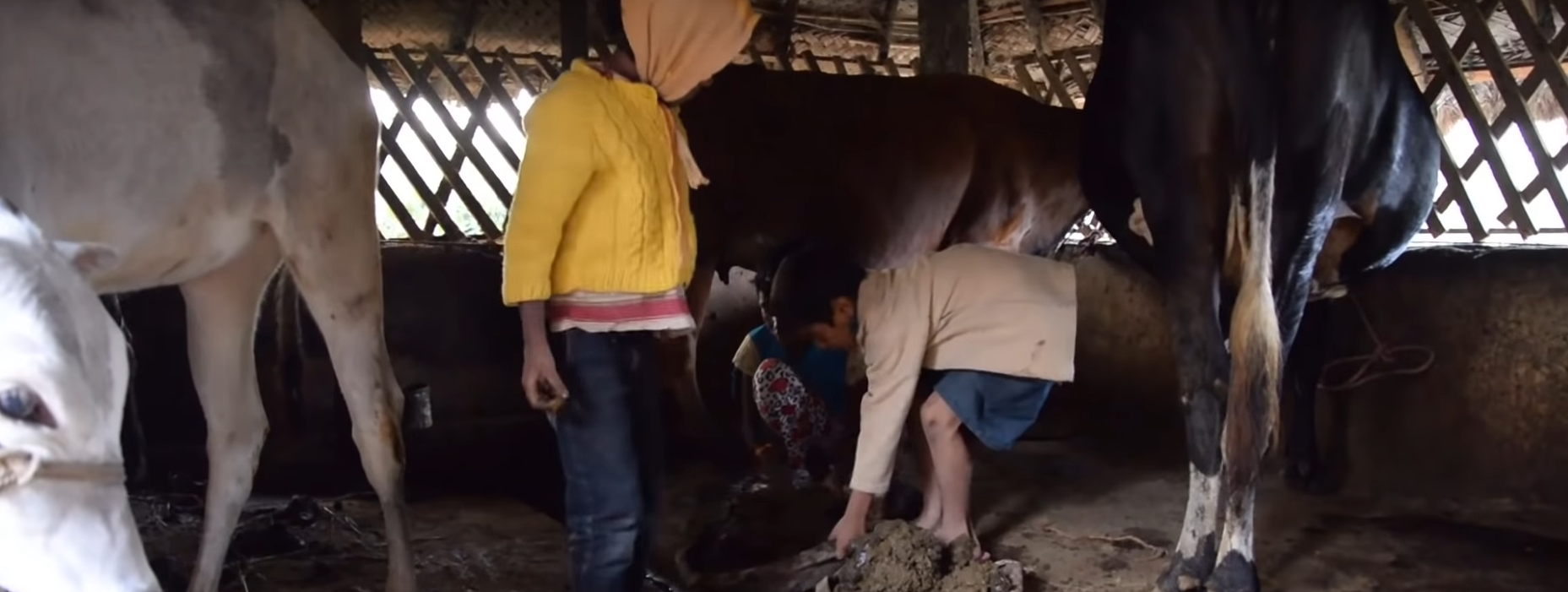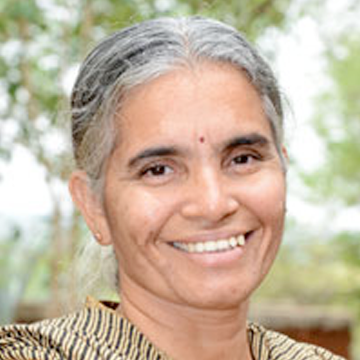
Q. How do you think the pandemic has affected the way we see education?
The pandemic — an opportunity to question the meaning of education
Parents are observing their child sitting at the computer or phone for the classes. They see that their child is disinterested and it is very difficult for them to sit for extended periods of time. As a result, parents are wondering if it is even necessary for all this information to be “pumped” into their children. This situation has led them to question whether the education system is doing the right thing for their children. Therefore, there is a huge interest in home schooling. Parents want children to learn naturally rather than being in a situation of competition and performance that exists in conventional schools as of now.
In a certain sense, we are now presented with an opportunity — If we are able to help parents also see education from the perspective of the child, we will be able to liberate ourselves from a lot of things.
We tend to see children as a burden, as “little people” who need to listen to us. However, as Robert Fulghum says:
❝Don't worry that children never listen to you; worry that they are always watching you.
Robert Fulghum — Robert Fulghum

Children learn by watching how we live. So, the focus of learning has to be on parents themselves. If parents are unhappy about something their children are doing, they should consciously reflect on their actions and what the environment is teaching their children. Most of the time, parents themselves have not gone through such a process of self-reflection. Most often, we don’t know anything about ourselves. We are not engaging with ourselves. We are not willing to accept who we are. All of us are living to be somebody else. Since the Middle Ages, this is what the education system has successfully done to all of us who grew up from the Middle Ages to right now. Therefore, the current disruption to the education system presents us with an opportunity for all of us to observe ourselves.
Q. Can you tell us more about why Puvidham was started?
The instinct to learn is as powerful as the instinct to survive
The first thing that the child learns is to find mother’s milk. She knows how to find the breast. How does she know that? There is something called an “instinct” which a child is born with. I believe that the instinct for learning is almost at par with the instinct for survival. The instinct for survival fuels the instinct for learning.
Think about it — how does learning happen? Again, if you observe babies, they start learning by using their senses. In fact, human babies cannot see clearly when they are born. They are learning through their sense of smell, touch, taste and hearing. Sight starts facilitating learning only after a month and half. Till that time, their vision is just a blur. The same thing applies to how children learn things like language. They observe, hear, absorb, repeat, imitate, observe themselves and correct themselves. We don’t teach the mother tongue by using a pen and paper. Schools tend to disregard this process of learning through sensory perceptions and try to thrust information on children. Such an approach contravenes nature and hence it usually doesn’t work.
As I observed my children growing up, I began to question what I had read on children and education. For instance, we say that little children have a very short attention span. But I have seen my son do an experiment at the age of two and a half, which lasted for more than an hour and a half. I wish I could have recorded that on a video. It proved wrong the notion that children are not capable of logical thinking and analytical thinking at that age. You have to see it to believe it.
Likewise, when my daughter was two, in the evening, I would leave her at home while I would go out to bring back the cows. It was hard to see where I was because the area where the cows grazed was covered with tall grass. One day, when I was a little late to return, she followed me there. I was surprised how she managed to find me. She told me she could find out where cows were grazing because egrets are usually flying over the place where the cows graze. I had never made this correlation myself. This incident made me realize I have nothing to teach the child. If at all, I will be teaching her my limitations. My fears. My biases. On the other hand, I have a lot to learn from how she is learning. How loving, forgiving and gentle she can be.
We often deny the instinct to learn
Teaching comes from a place of arrogance “I know more. I am in a position to teach because I am physically bigger and I have been on this planet longer”. Intuitive learning is the mother of all learning. As parents, we ask children to ignore their instinct and listen to adults. When someone comes home and the child stays away, we chide them. “Oh, what is this? Shake hands with uncle, give a kiss to uncle.” Later on, that child may end up being abused. We then wonder why the child never spoke up — because we had told her early in her childhood “Your instinct is not correct. You need to listen to the adult” this makes her vulnerable to being used by the adult. These things are very connected. We don’t see these connections. That is why our children are confused. They are lost. They don’t know who they are.
Q. If we don’t teach, how can we pass on useful information to the next generation?
We need to stop teaching and start inspiring
The first thing that differentiates humans from other beings on this planet is the power to create. The need to make things. We do things with our hands. That differentiates human beings from other animals. The present education system totally denies students the opportunity to create. In the name of “civilization”, “market economy”, and “capitalism”, we are denying children the ability to make their own toys, or for families to make things that they need for themselves -. We have only left them the need to “serve”, or rather the need to “slave.”.

The world is in the current state because when you are a slave, you need to be given some “prizes.” The consumer economy is the prize we are giving ourselves. We are being controlled by others. I am seeing George Orwell’s “1984” playing out in front of my eyes. It is frightening. If you observe a child, the need to create is innate. Instead, we buy very expensive toys and kill their creativity. So, when you deny someone the ability to create, give them things on a platter, they begin to see how well this works. They begin to think — “How much can it/they give me?” We go from being completely human to being monsters. We oppress others. Because we don’t make, we don’t understand the plight of farmers, what it means to be poor. We don’t even understand the plight of the child.
We don’t need to share information. By observing us, the children learn what to do. If they have to be free and happy, we have to be free and happy. They will learn that. We should stop teaching. We need to start inspiring.
